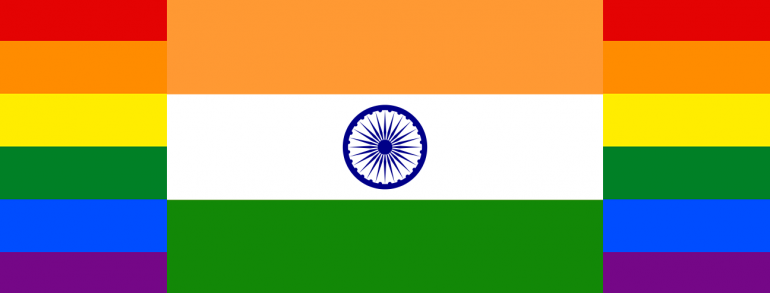I recently accompanied a young Indian man to meet with Chris Morrissey at Rainbow Refugee’s drop-in session at Qmunity. He is looking at options that would prevent him from having to return to India, which has recently criminalized homosexuality, thereby putting him at risk of persecution. When his work visa expires, his family back home expects him to return and they intend to marry him off.
According to Morrissey, he has an option to file an in-Canada refugee claim, largely based on his country of origin due to the recent regressive legislation that directly jeopardizes homosexuals in India. The new law was recently instated under India’s criminal code. Family pressure to get married is one thing, but under this law, individuals have no recourse, since the state doesn’t support their sexual identities.
In the case of Indian LGBT+ individuals seeking asylum, chances for a successful refugee claim are improved in Canada. Claimants must first get a lawyer for the hearing. Legal aid is an option available to many that don’t have the means to finance themselves. They should feel comfortable being represented and will need to make sure they can prove their country of origin.
A great deal of planning and preparation goes into a refugee claim. It is necessary to supply evidence to support one’s sexual identity. Every written account and piece of supporting testimony must be consistent. Questions asked at hearings can be somewhat uncomfortable, partly because agents at the hearing will have to make a decision in writing. So they need to clearly understand the position and must document the evidence to support their decisions.
According to Morrissey, a refugee application to Canada also has a medical waiver (i.e., the individual does not have to meet the medical requirements that are otherwise necessary under general immigration protocol). Having some non-communicable medical condition such as cancer, diabetes, HIV, etc… does not make it impossible to get a refugee claim, whereas applying for immigration as skilled worker with a disease automatically makes you medically ineligible.
“People often think they are ineligible based on these grounds and ‘self-select’ out”, stated Morrissey, founder of Rainbow Refugees Society. Any health-related issues that may exist can intuitively be perceived as a challenge to a successful claim; however, under India’s new law, Chris figures it could actually bolster a refugee claim. Perceptions of disease may put individuals exceedingly at risk of persecution in society, particularly due to India’s history as a caste society.
“Diseased people will be treated as untouchable within their own family, even though parents love their kids,” stated the young man who met with Chris. “It puts them under excessive pressure and improves the chances for making wrong decisions. Without any perceived love and support from family, how can they expect love and support from society?”
Every refugee claimant must have a reasonably well-founded fear of persecution.
“It is important to distinguish between persecution and discrimination”, noted Chris. An article under the 1951 Geneva Convention relating to the Status of Refugees, of which Canada is a signatory, states that persecution is implicit if individuals cannot get state protection. Persecution is explicit in situations where the state has legally denounced certain sexual identities, such as in India.

Leave a reply